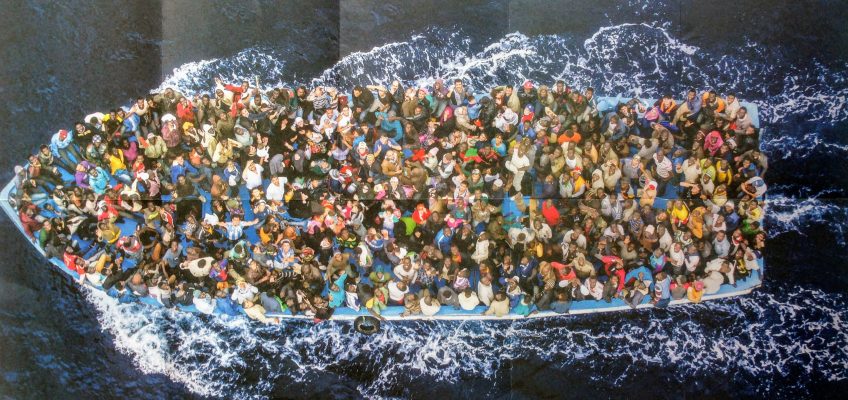Readings for the Second Sunday of Ordinary Time, Year B
A note: Several events converged this week that have caused me to add a note to the commentary for this Sunday’s readings. First, I received in the mail the poster shown in the photo above. (Be sure to click the photo to see the entire poster with its powerful header. Also, learn more about the image and the photographer and about the organization that sent me the poster.) Then I received a comment to one of my commentaries basically saying that I should keep political events out of the commentaries I write because what happens in these political events has nothing to do with the liturgy. Obviously, I disagree, and so would our Scriptures, our popes, and the Catechism. In particular, when our nation’s actions devalue the dignity of any person’s life, that is precisely what we need to bring to the liturgy so that the Spirit might transform our hearts and renew the face of the earth. Otherwise, our liturgy becomes mere “burnt offerings” and the “authenticity of our Eucharist” will be questioned. And finally, we have the event in the Oval Office that has led many news organizations to change their policy on the use of profanity and has moved our US Bishops to issue a statement in response.
This Sunday (and every Sunday), we must listen very carefully to the Scriptures and open our ears to take them to heart. Then, we must pray for our homilists that they will help us interpret the events of our lives this week through the lens of the Scriptures we have just heard. If we do this, then, with God’s mercy, we might be able to genuinely lift up the needs of our world and, through the Eucharist we share, work with the Spirit to reconcile all people to the Father. That means going out into the world to proclaim what we have heard and seen and touched and tasted in the liturgy, that is, the very life of Christ, here, right before us.
Blessings to each of you as you follow in John the Baptist’s footsteps and help us see the face of Christ right in front of us.
—DM
Last week’s celebration of the Epiphany traditionally highlights one of the three epiphanies or “manifestations” of Christ: in the manger in Bethlehem, at the wedding banquet at Cana, and in the river Jordan. Today, the epiphanies continue with John the Baptist turning his disciples’ full attention toward Jesus as he walked by. Thus began a relationship that would change their lives and the world forever.
We can pay so little attention to the people who pass us by day by day. What if John the Baptist had been so focused on teaching that he didn’t notice Jesus walking by? If we were the disciples in that scene today, most of us would likely have been too engrossed with our phones to have looked up long enough to see the Lamb of God right in front of us. Jesus, too, could have gone about his day, kept his course, and stayed on schedule. Instead, he noticed the folks following him from behind and did something different.
If you’re looking for God-with-us, the first step is simply to look at the people around you, especially at the ones you would most likely overlook. The next step is to stop what you’re doing and act: follow, change your course, talk. Revelations of God’s presence happen to those who look for them.



Leave a Reply